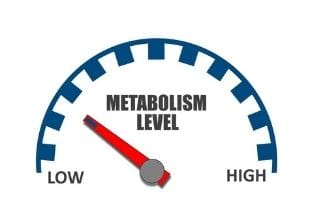Journal of Glycomics and Metabolism
Advancing molecular understanding of glycan structure, biosynthesis, and metabolic regulation through rigorous peer-reviewed research
JGM maintains a rigorous focus on molecular mechanisms and cellular processes that govern glycan biosynthesis and metabolic regulation. We seek manuscripts that employ biochemical, genetic, structural, and computational approaches to dissect molecular phenomena from the subcellular to the systems level.
Our editorial board curates submissions across interconnected domains of glycobiology and metabolism, always anchored in molecular mechanisms:
Molecular characterization of glycan structures, biosynthetic enzyme mechanisms, glycosyltransferase regulation, and glycan assembly pathways.
Proteome-wide glycosylation mapping, mass spectrometry-based glycan profiling, site-specific glycosylation analysis, and glycan-protein interaction networks.
N-glycosylation and O-glycosylation pathway regulation, quality control mechanisms, ER-Golgi trafficking, and post-translational modification crosstalk.
Central carbon metabolism, amino acid biosynthesis, nucleotide metabolism, metabolic flux analysis, and transcriptional/post-transcriptional control of metabolic genes.
Mass spectrometry-based metabolite quantification, NMR spectroscopy, isotope tracing, metabolic fingerprinting, and computational metabolomics.
Molecular mechanisms of nutrient detection, signal transduction cascades, transcription factor activation, and metabolic adaptation at the cellular level.
Glycan-mediated cell signaling, lectin-glycan recognition, glycan roles in protein folding, and membrane glycocalyx structure-function relationships.
Rational design of glycosylation pathways, CRISPR-based metabolic pathway reconstruction, synthetic glycobiology, and engineered biosynthetic systems.
Identification of glycan-binding proteins, metabolic enzyme inhibitors, structure-based design of molecular probes, and target validation assays.
Integrative omics analysis, network modeling of glycan-metabolism interactions, computational pathway prediction, and machine learning applications.
JGM welcomes manuscripts employing cutting-edge analytical and experimental approaches that advance technical capabilities in glycomics and metabolomics research:
Glycan Analysis Technologies
HPLC-MS/MS glycan sequencing, MALDI-TOF profiling, glycan microarrays, lectin-based detection systems, and enzymatic deglycosylation strategies.
Metabolite Quantification
Targeted and untargeted metabolomics, stable isotope labeling, flux balance analysis, real-time metabolic monitoring, and multi-omics integration.
Structural Biology Methods
X-ray crystallography of glycan-processing enzymes, cryo-EM of glycosylation machinery complexes, NMR solution structures, and molecular dynamics simulations.
Genetic & Genomic Tools
CRISPR/Cas9 gene editing, RNA interference knockdown studies, transcriptomics of metabolic genes, ChIP-seq for transcription factor binding, and epigenetic profiling.
Authors choose JGM for our commitment to scientific excellence, editorial responsiveness, and broad dissemination of molecular biology research:
- Rapid Editorial Processing: Average first decision within 21 days, with efficient reviewer assignment and author-responsive editorial guidance.
- Expert Peer Review: Evaluations conducted by specialists in glycobiology, metabolomics, structural biology, and analytical chemistry who provide constructive feedback.
- Open Access Impact: All articles published under Creative Commons licenses, ensuring unrestricted global access and maximum citation potential.
- Comprehensive Indexing: Articles indexed in major scientific databases including Google Scholar, ensuring visibility to the molecular biology research community.
- Author-Friendly Policies: Clear submission guidelines, responsive editorial communication, and streamlined manuscript preparation workflows.
- Data Transparency: Encouragement of supplementary data files, protocol sharing, and links to public repositories for raw datasets.
Distinguished Editorial Leadership
JGM is guided by an international Editorial Board comprising leading molecular biologists, biochemists, and analytical chemists with expertise spanning glycan biosynthesis, metabolic regulation, structural glycobiology, and systems biology. Our editors ensure rigorous peer review standards and editorial integrity across all published content.
The editorial team collaborates with specialized reviewers worldwide to evaluate manuscript quality, methodological soundness, and contribution to advancing molecular understanding of glycomics and metabolism.
JGM benefits from contributions by researchers affiliated with leading institutions globally:
- Universiti Sains Malaysia
- Lady Reading Hospital
- Quaid-i-Azam University
- Northern Deanery, United Kingdom
- Nathan Kline Institute
- Cairo University
- Theodor Bilharz Research Institute
- Nathan Kline Institute for Psychiatric Research
- Long Island University
"I was impressed by the swift services of the journal and easy navigation beginning from manuscript submission to galley proof. I would recommend future authors-'Consider this journal if you are wondering where to publish your scientific work.' They are Google Scholar indexed and so you do not have to worry if your scientific work won't reach the community of other researchers."
"The positive editorial attitude and cooperation were encouraging and supportive. Moreover, the fast response and processing of the manuscript reflect an appreciation of the time factor. The user-friendly submission system allows for up-to-date follow up. The review process is performed in a reasonable time with constructive comments that aim to improve the paper quality. Communication between the authors and the journal is exemplary."
JGM welcomes Original Research Articles, Review Articles & Comprehensive Reviews, Methods & Protocols & Methodological Innovations, Short Communications, Perspectives & Opinions, Data Notes, Case Reports & Case Series, Conference Proceedings, Letters to Editor, and Book Reviews. Manuscripts should advance molecular understanding of glycobiology, metabolism, or their intersection through rigorous experimental or computational approaches.
All submissions undergo rigorous peer review by experts in relevant molecular biology disciplines. Authors receive constructive feedback regardless of editorial decision, and accepted manuscripts are published rapidly with permanent DOI assignment.
Advance Molecular Glycobiology and Metabolism Research
Share your discoveries in glycan biosynthesis, metabolic regulation, or omics technologies with the global molecular biology community through JGM's rapid, rigorous, and open access publication platform.


